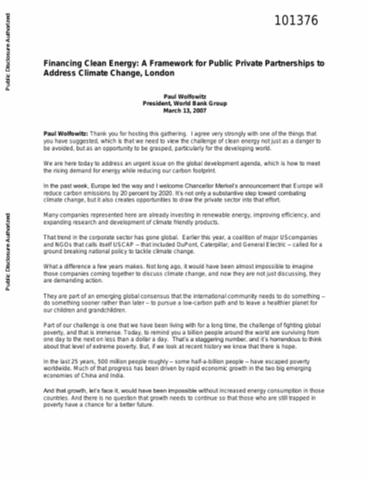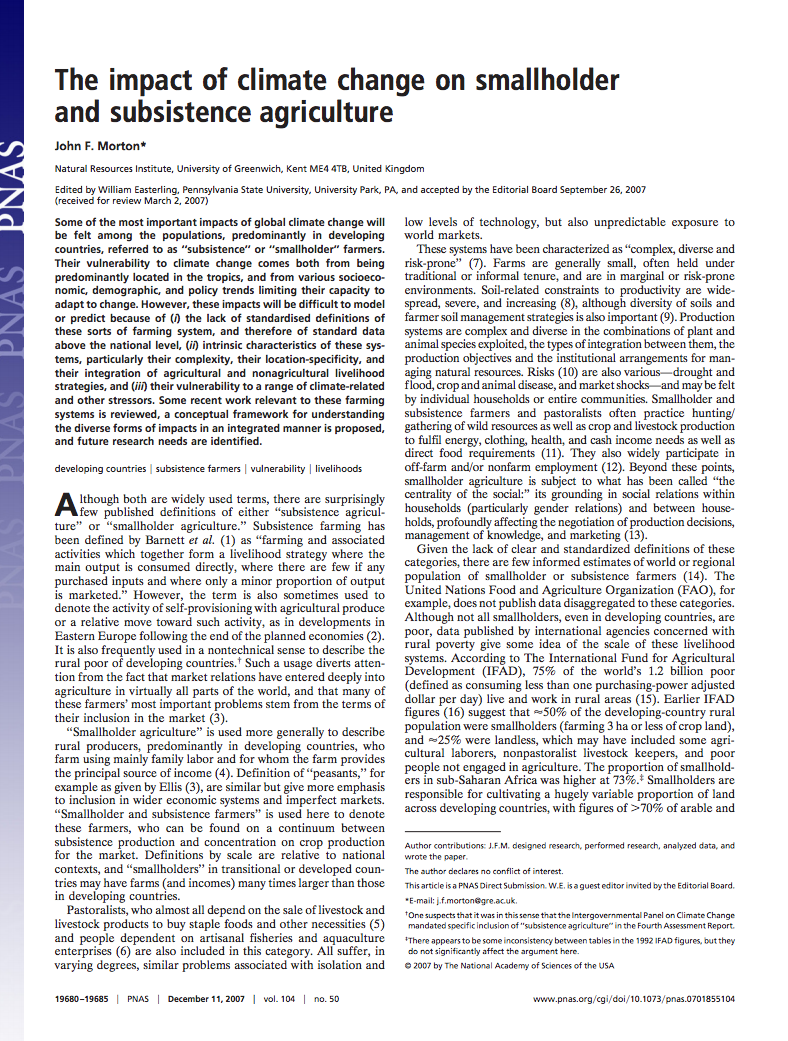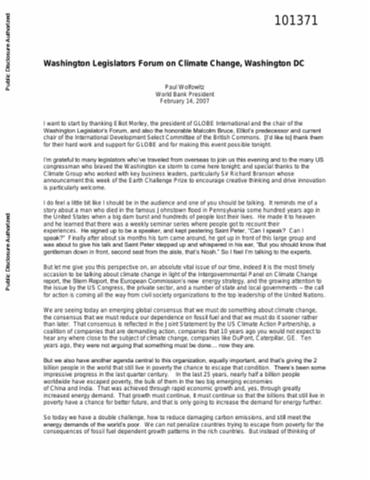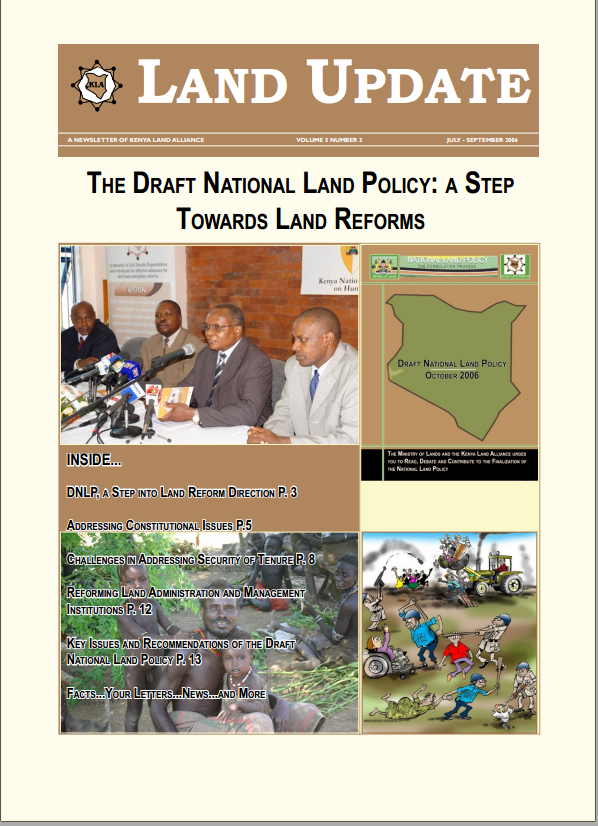Financing Clean Energy
Paul Wolfowitz, President of the World Bank, discussed how to meet the rising demand for energy while reducing our carbon footprint. Rich countries need to lead by example, renovating and replacing infrastructure and investing in clean technology. Rich countries also need to lead with direct support to developing nations, both to reduce poverty and reduce carbon emissions. Moving to a low carbon path will require investments, and a long-term equitable global regulatory framework to reduce greenhouse gas emissions.









